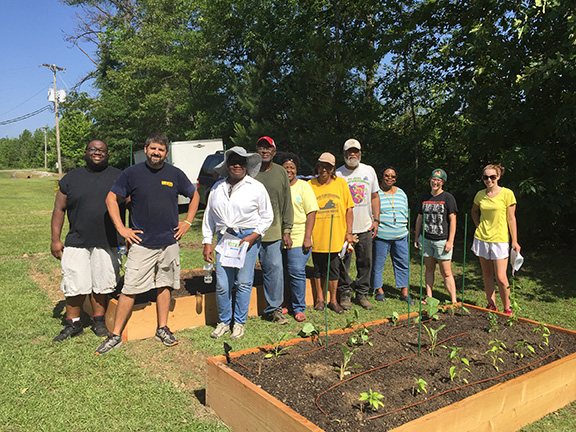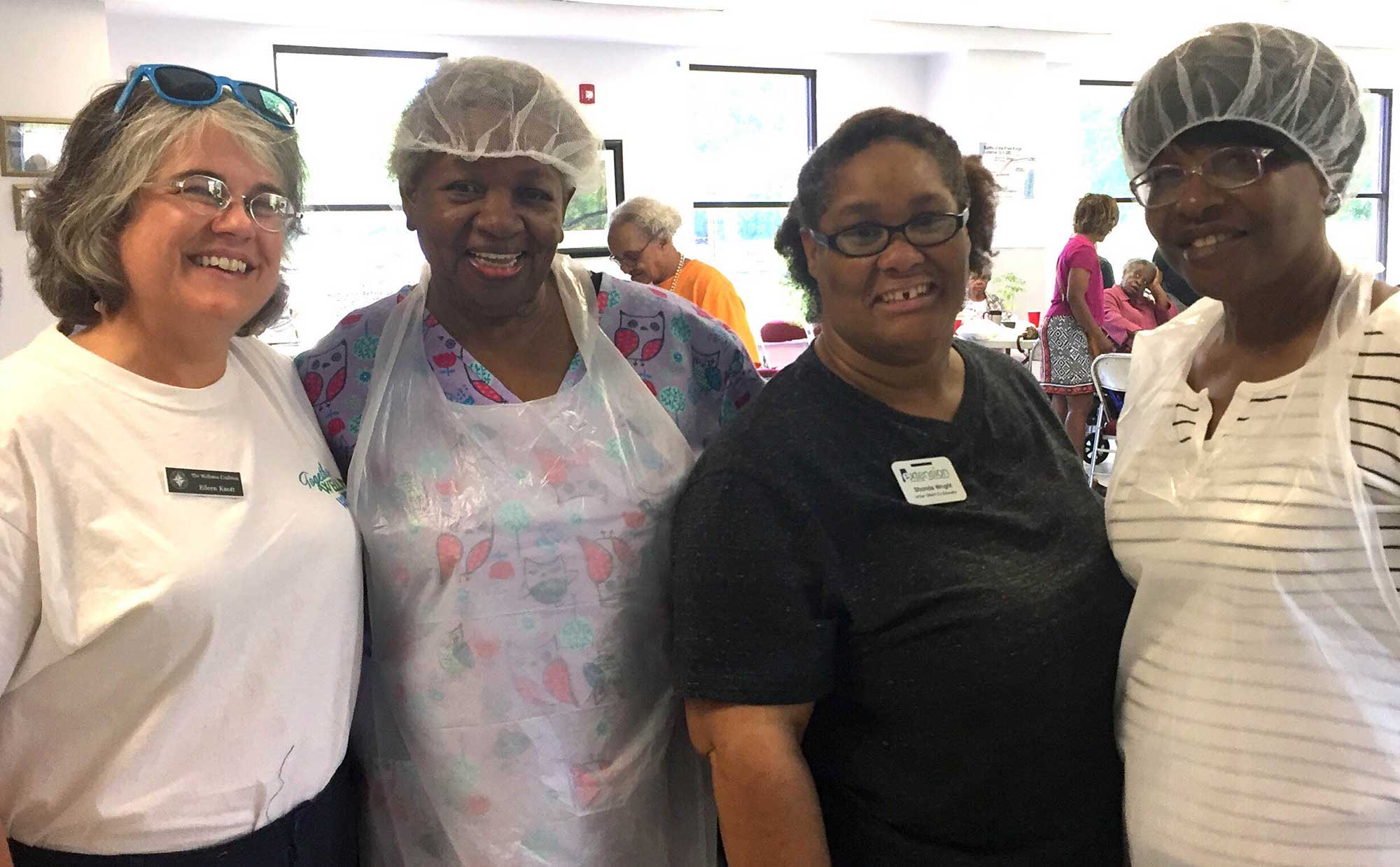
Community Garden Committee with CARPDC and EATSouth trainers at St. Paul CME in Hayneville
The Wellness Coalition has partnered with Central Alabama Regional Planning and Development (CARPDC) and EATSouth to provide local communities with training to start building their own gardens, big or small.
In accordance with the REACH objective to increase the availability of healthy food by teaching gardening skills, CARPDC has contracted with five different churches in Macon, Lowndes and Montgomery Counties to develop community gardens on their respective properties and host bi-monthly trainings for community members who are interested in developing and sustaining their own fruit and vegetable gardens.
This year’s garden training sites:
- Notasulga United Methodist Church in Notasulga
- Antioch Baptist Church in Montgomery
- Episcopal Church of the Holy Comforter in Montgomery
- First Tuskegee SDA Church in Tuskegee
- St. Paul CME Church in Hayneville
“Showing communities how easy it is to plant and grow their own food is a great way to increase access to fresh food,” said Cynthia Bisbee, PhD, executive director of The Wellness Coalition. “We also want people to learn how growing fresh fruits and vegetables can save on grocery bills, especially when communities come together to create community gardens.”
Now in its third year, community garden training has really taken root in parts of the community. Part of the program’s popularity has been the expansion of training offered to make gardening possible for everyone.
“Demonstrations were added last year to show how you can raise vegetables in pots on your porch or door step,” said Cade Gunnells, community development specialist at CARPDC. “This is valuable information to anyone who lives in an apartment or home where land is not readily available.”
Last year, The Wellness Coalition produced an instructional video with EATSouth detailing how to plant in containers. To learn more about gardening, visit our gardens page.
From the Field: Eileen Knott On Her Gardening Experience With Stonerock Antioch Baptist Church

Left to right: Eileen Knott, Josephine Wright, Shonda Wright, and Shirley Finch
The community garden at StoneRock Antioch Missionary Baptist Church was planted on May 2, 2017. EATSouth’s Bethanne Dunagan and CARPDC’s Cade Gunnells were on hand to provide an interactive training to those gathered on why certain vegetables were planted together, how to transfer them from pots into the garden soil, and the best fertilizers to promote growth. After the garden was planted and the training completed, all were treated to a lunch in the fellowship hall.
When Pastor Nuckles first learned of the opportunity to develop and sustain a community garden with some initial support from CARPDC, he involved church lay leaders James Finch and Willie Mixon. Mr. Finch, a farmer who has been growing his own garden and sharing his harvest with the church for the last several years, will apprentice Mr. Mixon in garden maintenance. Pastor Nuckles also hoped that, together, they would draw others from the church into the ongoing effort.
Mr. Finch shared the opportunity with his wife, Shirley, who serves as a volunteer program director for the Antioch Seniors Hands of Hope Ministry that meets at the church four days a week. The seniors wanted an active part in the garden and have taken on the responsibility of checking on the garden’s health each day, watering it, and reporting to Mr. Finch if there are issues that threaten the garden.
The seniors also plan to harvest the garden and incorporate its yield into their weekly lunches, even planning to have at least one lunch that was made up entirely of produce from the garden. With the input of the senior ministry members, a plan was developed to grow tomatoes, basil, eggplant, cow peas, cucumbers, squash, and okra in four raised beds.
Since the garden planting, Mr. Finch has been cultivating the participation of younger people of the church who have shown interest in the garden. It is his hope that their commitment to the garden will grow with time and that succeeding generations will benefit from the effort and its bounty.
